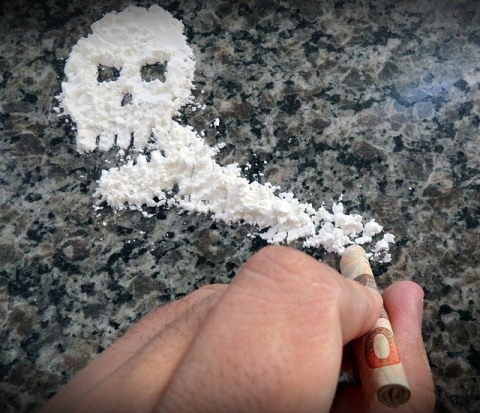One of the nice benefits of running this site is that I get to hear from lots of interesting people about how limerence is affecting their lives. A surprisingly common lament – often voiced quietly or in a slightly embarrassed tone – is that many limerents don’t really want the limerence to stop altogether, because they worry that when it ends, life will become drab and listless.
The heights of limerence can make you feel superpowered. The euphoria isn’t just focussed on LO, it spills out into everything you do. Energised and enthusiastic, you feel able to take on the world.

Why?
It’s a bit odd when you think about it. Why should becoming infatuated with a new person be so comprehensively enlivening? What’s going on? And why doesn’t it last? Why does it turn into a mania? Should we try and live without it?
1) Reward and motivation
I’ve talked before about the neurochemistry of limerence, and how it arises from the reward circuitry of the brain that uses dopamine as a neurotransmitter.
The function of this part of the brain is not limited to just “happy vibe feedback”, it is a core system that drives motivation. Activity in this circuit prompts you to take action. It makes things attractive. It increases their “motivational salience”. Put simply, it makes you want things (and people).
If limerence is causing a persistent activation of these circuits, then it’s going to make you feel highly motivated, full of drive, and itching to take action. The world seems more full of opportunities and excitement than threats.
This also makes some sense from an evolutionary perspective. If your limerent brain thinks it’s found a promising mate, heightening your motivational drive and positive emotions is likely to make you energised and super keen to seal the deal. At this point, the motivation circuit is working as it should.
2) It is literally like a drug
It’s an appalling journalistic cliche to claim “[substance or behaviour] activates the same parts of the brain as cocaine”. I dislike this hackneyed angle, because it misrepresents the way the drugs work, but in this case, it is sort of apt. But, because I’m a pedant, I’m going to be precise.

What cocaine and amphetamines actually do is stop the circuit switching off, by preventing the reuptake of dopamine after release. Pedantry compels me to also mention that they do lots of other disruptive things to neurochemistry too, but in this context the key thing is that reward triggers will be greatly enhanced. You get the dopamine “buzz” without the need for much – if any – rewarding stimulus.
That’s why cocaine makes you feel super energetic, confident and high, and like everything seems significant and meaningful. It basically hypersensitises the motivation/reward circuits, and makes you feel motivated and rewarded even when nothing special is actually happening.

3) Can you manage this responsibly?
So, does all this mean that limerents are sort of, kind of, developing a natural coke habit when they become limerent? Well… it’s certainly a plausible hypothesis, but as with all aspects of limerence there’s very little actual research evidence. If we lump limerence in with other behavioural addictions (like gambling or social media addiction) then it fits the same pattern of being initially rewarding but then transitioning to anxiety and dependence.
Can you retain the high without the risk of a much more serious low? Hmm. Well. I would say that the best way to approach this issue is to take a fundamentally different view: activate your reward circuitry by seeking real rewards.
This neural system evolved to compel us to seek out the things we need in the environment to allow us to thrive. When we’re hungry we seek food. When we’re bored, we seek novelty (because that could lead to useful discoveries). When we’re sexually aroused, we seek a mate. But humans are notable for the size of our swollen brains, and so we can also be motivated to seek abstract goals – self-expression, status, wealth, lasting happiness. The key, then, is to focus your mind on worthwhile goals. Things that you want. Things that are rewarding. Things that will naturally fire up your dopamine circuits when you make progress towards attaining them.
That’s why purposeful living is such a powerful strategy for managing limerence. You redirect your motivational drive towards things that you care about in life, things you want to attain or achieve. Let’s say you are an artist – striving to improve your craft, making progress on how effectively you can realise your vision, getting recognition (and even money) for your work. These are all excellent motivational drives, with built in rewards along the way if things are going well.
Directing your limerence energy into positive, purposeful motivations is a healthy way of capitalising on the “euphoric bump”, and if you can succeed in smoothly replacing the pseudo-reward of limerence with the true reward of personal achievement, then you really win.
The danger point is when you lean on limerence in the same way that self-destructive artists have leaned on drugs and other addictions since time immemorial. Don’t try to motivate yourself with limerence, try to motivate yourself with the lasting, lifelong reward of living well. It’s the only surefire way of riding a natural high.
I don’t know if you really want to use addiction as the model for limerence either. A relationship with an addict is by definition, unhealthy. Even if the partner is unaware that limerence (or any other addiction) is in play in their relationship. After all, a synonym for addiction is dependence – do limerents really depend on the person for whom they are pining?
Is infatuation a word carrying less freight?
I don’t really know where I’m going with this but I’ve posted some quotes below to illustrate my point.
“Family members develop unhealthy coping mechanisms when faced with the chaos that is common in a home where a parent is addicted. A spouse and children of an addicted individual often have extra duties at home to compensate for the spouse or parent’s neglect of responsibilities. Reality is bent as family members endure frightening or unsettling experiences and as abnormal behaviors by the addicted family member become normalized. ”
“Additionally, the relationship itself is often lacking.”
“These issues cause a great deal of stress for the non-addicted spouse, and they lead to unhealthy habits, harmful ways of thinking and a low quality of life. It’s not surprising then that, according to the previously mentioned study, nearly half of these marriages end in divorce.”
Is still think it’s apt. The ambiguity comes because in the early stages limerence is a normal healthy thing, and actually very effective at cementing a pair bond. If romantic feelings are not reciprocated, or prolonged by uncertainty, but the limerent keeps seeking a hit, that’s when it trips over into addiction.
Learning how to avoid that slide into the pit seems to be the key challenge for integrating limerence into your life, as far as I can see. That and figuring out the even harder challenge of digging yourself out if you are already in it.
On your quotes: to judge from some of the messages I get, there are plenty of limerents out there who are acting as selfishly as any other addict. There’s a debate to be had as to whether that’s an issue of limerence or an issue of character, but I think there is explanatory value in the “person addiction” perspective.
‘Don’t try to motivate yourself with limerence, try to motivate yourself with the lasting, lifelong reward of living well. It’s the only surefire way of riding a natural high.’
Thanks for these wise words, straightforward but so true. Applicable to any kind of addiction, even if the neurochemistry is slightly different!
Wow
This is so true. I have been living on high at work as colleague who is my LO gives me nice feedback and is someone who I hangout with.
Need to be happier without external forces and still feel the high.
Cos I have given a boost to her self esteem and helped her in her own personal development an attachment has been bourne. But in my head
I have to say that your site is one of the very best on the Internet that truly understands limerence. This article is very representative of your exceptional writing abilities and high degree of your scholarly work. Universities award honorary degrees all the time. You actually deserve one for your body of work.
Thank you!
Thanks Zaggner, for your very kind words. And welcome!
This is exactly how I feel! Since I became limerent about six weeks ago, I have had a much greater motivation for going to the gym, losing weight and focusing on my appearance. In many ways, I find the limerent condition helpful (although it isn’t helping me at work since my mind tends to wander and think about the LO). However, I just realized something strange tonight: While I want to shake off the obsession and the sense of “pining away” for the LO, I would be quite happy to downgrade my limerence to a simple crush that makes me happy and smile when I think about the LO. The biggest problem is I am married, but I have been able to deal with mild crushes in the past without them shaking the foundations of my marriage.
I hardly know the LO, and I have basically been NC since I met her six weeks ago. I did friend her on social media for less than a day, but I ended up unfriending her (with a partial explanation after I realized my wife would be jealous – the LO took it rather well, although she did want me to tell her more information about exactly what I had told my wife about her). After kicking myself in many ways for losing access to her social media page, I managed to find some online pictures of the LO tonight. I don’t mean to sound cruel, but I was actually struck by how old she looks. I remembered I had thought she was older than she is when I first met her, but I somehow downplayed that and built up how gorgeous she is in my mind. I still find her attractive, but it was oddly satisfying seeing those pictures of her tonight and realizing she isn’t as strikingly beautiful as I began to think of her as being. I am even wondering if this is the beginning of the end of the true limerent stage for me and if I am able to downgrade my feelings (although my interest goes beyond physical attraction). I read on another site dedicated to limerence that reminding yourself of the LO’s flaws and perhaps even creating a non-flattering nickname for the LO can provide some help. I think it helped me, although I would still like to retain some positive feelings and memories of this woman while being able to focus on self-improvement and improving my marriage.
> I managed to find some online pictures of the LO tonight. I don’t mean to sound cruel, but I was actually struck by how old she looks. I remembered I had thought she was older than she is when I first met her, but I somehow downplayed that and built up how gorgeous she is in my mind. I still find her attractive, but it was oddly satisfying seeing those pictures of her tonight and realizing she isn’t as strikingly beautiful as I began to think of her as being.
You’re very lucky 🙂 About a year ago, which was eight years after my fully-blown LE, my former LO showed up with a video in my social media feed. She was still ridiculously beatiful by all means, took on a professional career in an adjacent field and limerence started to develop again…
It’s so true that the limerent high can positively impact many areas of life not related to relationships. For example, for me, FOOD tasted so much better while I was limerent. I sort of became addicted to eating out. Also, colours seemed brighter and I became really interested in clothes. Now I am nonlimerent, I have honestly lost interest in clothes-shopping – no reason to look nice anymore! Haha!
After him, no one went, no one returned 🙁